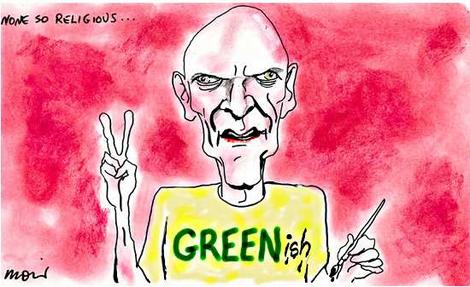Mood:
Topic: aust govt

59 year old Bob Irvine, a NSW public servant, family man, and dedicated professional in the natural resources management area has submitted this quite unique view of how money has changed in purpose over the centuries.
He argues that the future lies back when money did not control land use governance as such. Bob has been polishing this conceptual analysis for years apparently so it's sincere and likely quite wise.
We suspect there is something very big buried in his well written fairly short paper. Too big perhaps this side of a very disruptive reform of modern society and governance to a more ecologically sustainable basis. Relevant all the same as mainstream institutions do indeed contemplate a post carbon emissions economy.
Thankyou for the paper Bob Irvine and we will read it with interest along with any readers of Sydney Alternative Media website.
Can New Money and Good Accounting Save the Planet from Human Induced Ecosystem
Service Degradation (Climate Change, etc.) and Bring Health, Wealth and Happiness to All?
In "The Climate Change Challenge and the Failure of Democracy", (Præger, 2007)[1] David
Shearman and Joseph Wayne Smith contend that our market economy and unfettered
corporate power is as instrumental as our excessive carbon effluent in the collapse of Earth's
ecosystem services. They argue that human induced ecosystem service degradation (Climate
Change, etc., etc.) and the rapid rise in wealth of the liberal democratic political economies
are closely related. Both are the result of the freedom granted to citizens and corporations to
plunder the Earth's social and natural resources without accounting for or paying for the cost.
Consequently they find that a different sort of political economy is essential to enable and
allow effective action by all humans to halt our destructive activities and to prevent and
remediate the degradation of the ecosystem services upon which all life on Earth depends,
particularly our excessive consumption, extinction of species and destruction of ecosystems.
These are challenging words, indeed.
We who look, read, and think with the leisure, education and science that our "free market"
economies have enabled, know that the Earth's ecosystem services are very badly damaged
(the evidence is incontrovertible), that the survival of our human species is threatened (the
threat is real), and that our "freedom to plunder" is the CAUSE of most of this damage.
Shearman and Smith find (p.71) that humanity has three options for sustainable economies:
* a "free market" liberal democracy with refinement (monetary valuation of
ecosystem services, commons trading, green accounting, etc., etc.). They find this
inadequate since "freedom to plunder" is the cause, and a refinement is not enough.
* an ecocentric liberal democracy (eg. the Australian Aboriginal economy) They agree
this would work, but would entail a revolution in knowledge, science and human value
systems and would be resisted by existing vested interests (power and capital), so that
no existing democracy would freely chose this option. They dismiss it as unrealistic.
* an authoritarian government with strict enforcement of ecological protection
(dictatorship of the wise) They conclude that "this may be the only solution for
humanity". They contend that the Earth's capacity to provide ecological services will
be extinguished without strict control of all human activity affecting the environment.
Shearman and Smith's classification of the options for a sustainable human political economy
is helpful for framing a proper consideration of just what a "sustainable political economy" is
and how one could deliver and sustain the revolution in human behaviour needed to stop
human induced ecosystem service degradation, promote useful activities and quickly direct
all humanity's creative and scientific energies to the task of regenerating ecosystem services.
These may be the only options to respond to the present threat, so clearly seen by Malthus at
the time the worst of this trouble began, but the question of the best mix is an interesting one.
Shearman and Smith's clear thinking; health and science knowledge; and, good scholarship
cut through the noise of the 'Climate Change' debate bringing clear focus to the main question
of our human future, allowing wise readers to understand and accept that in the getting of our
great wealth great harm has been done, and to realise it is our certain responsibility to fix it.
